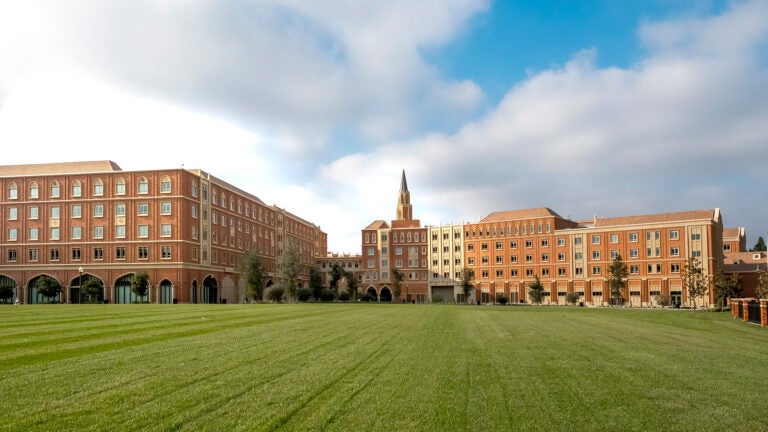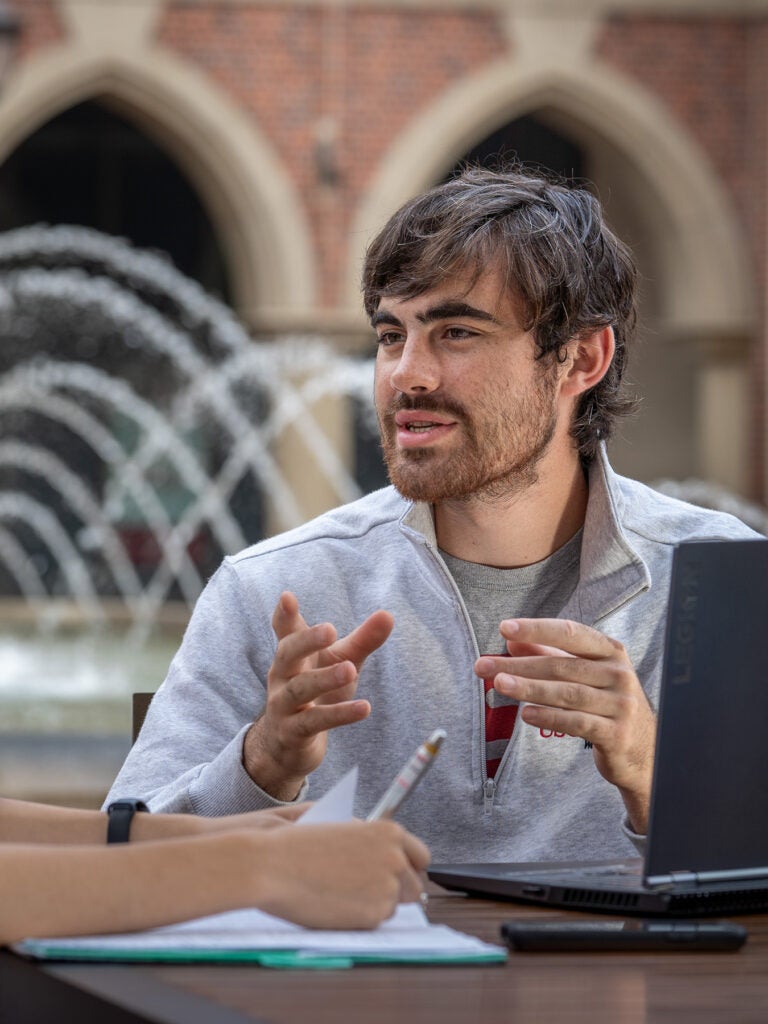Each of the four research sections in the Biological Sciences department offers a unique set of undergraduate research opportunities. Click on each of the links below to learn more about these opportunities
Marine & Environmental Biology
The core scientific mission of the Marine and Environmental Biology section is to understand marine organisms, their interactions in complex marine ecosystems, and the emergent properties of the communities that result from these interactions.

Molecular & Computational Biology
The faculty and students in the Molecular and Computational Biology section share the common approaches of molecular biology, computational biology and genetics, yet they are extremely diverse in the way they apply these approaches to specific biological systems.

Human & Evolutionary Biology
The primary scientific mission of Human & Evolutionary Biology section is the elucidation of the structure and function of the human organism within the context of development, environment, pathology and evolution

Neurobiology
The Section of Neurobiology is composed of a vibrant neuroscience community of faculty, students, post docs and technical specialists who pursue research aimed at understanding the basic biological mechanisms that underlie neuron and brain function. Areas of investigation span the range from structural biology to neural gene expression and neural network analysis.


Undergraduate Research
Every year approximately 100 undergraduates in the Department of Biological Sciences engage in undergraduate research. Of these, about 75 complete BISC-290 or 490 for undergraduate credit. Approximately one-third of these are directed by faculty at the USC Keck School of Medicine, while the other two-thirds complete work under the direction of faculty at the USC University Park Campus (UPC) or the USC Wrigley Institute on Catalina Island. Students completing work on the UPC are free to work with any professor, in any school or department engaged in wet-lab research.

Research For Unit Credit (BISC-290/490)
Sophomores may register for BISC-290 (pre-requisites: BISC 120L/121L and 220L/221L; CHEM-105aLg and 105bL) and juniors and seniors may register for BISC-490 (pre-requisite: junior or senior standing departmental approval). Both 290 and 490 research projects require a minimum 3.0 GPA (science and cumulative).
Applications and a FAQ for BISC 290 and 490 research are available on the forms link. Both 290 and 490 require the support of a faculty sponsor and approval by the Chair of Biological Sciences.
Honor Students in Biological Sciences also write a thesis (BISC 494).
BISC research applications must be submitted to Linda Bazilian in AHF 107 F, by the end of the first week of classes in the semester in which you wish to enroll. Please make arrangements to meet with your sponsor well in advance, and allow two weeks for a decision from the department chair.
Students requesting 2 unit credits of 290 or 490 are expected to support their lab eight hours per week, while students requesting 4 unit credits of 290 or 490 are expected to support the lab sixteen hours per week.

Time Management
Student who sign up for BISC 490 are expected to spend a minimum of three to four hours of weekly lab work per credit hour (e.g., 4 credits would require12 to 16 hours per week in the lab). Some students prefer to pursue their project by signing up for 2 credits of 490 in two consecutive semesters (i.e., eight to 10 hours per week of lab work for two semesters). Students who pursue this option are expected to work on the same project with the same sponsor both semesters.

Faculty Sponsors
The selection of a faculty sponsor is an important aspect of the research experience. Your sponsor may be any regular faculty member of the university who is carrying out biological research in a university laboratory. “Biological” is very broadly defined, but the project must involve basic research and cannot be clinical medicine. The selection of a sponsor is a student-initiated process and should involve your becoming familiar with several faculty members’ research interests. You can start with a Web search and/or by reading published papers.
Most faculty members will accept undergraduates in their laboratories if they have space and funding, and if they are impressed by your interest and preparation. (DO NOT start off by saying you want research on your resume.) Once you know the rules and regulations for 290/490 projects, you should make a list of three to five faculty members in whose research interests you and contact them to set up an appointment to see if they have an opening in their labs. Be aware that faculty members are very busy and you will need to plan well in advance to meet with them, write a proposal with their guidance, and meet the deadline for submission of your proposal.
When applying to work with out-of-department faculty, we ask that you check with Linda Bazilian to find out whether we have a current curriculum vitae (C.V.) on file for the sponsor with whom you would like to work.